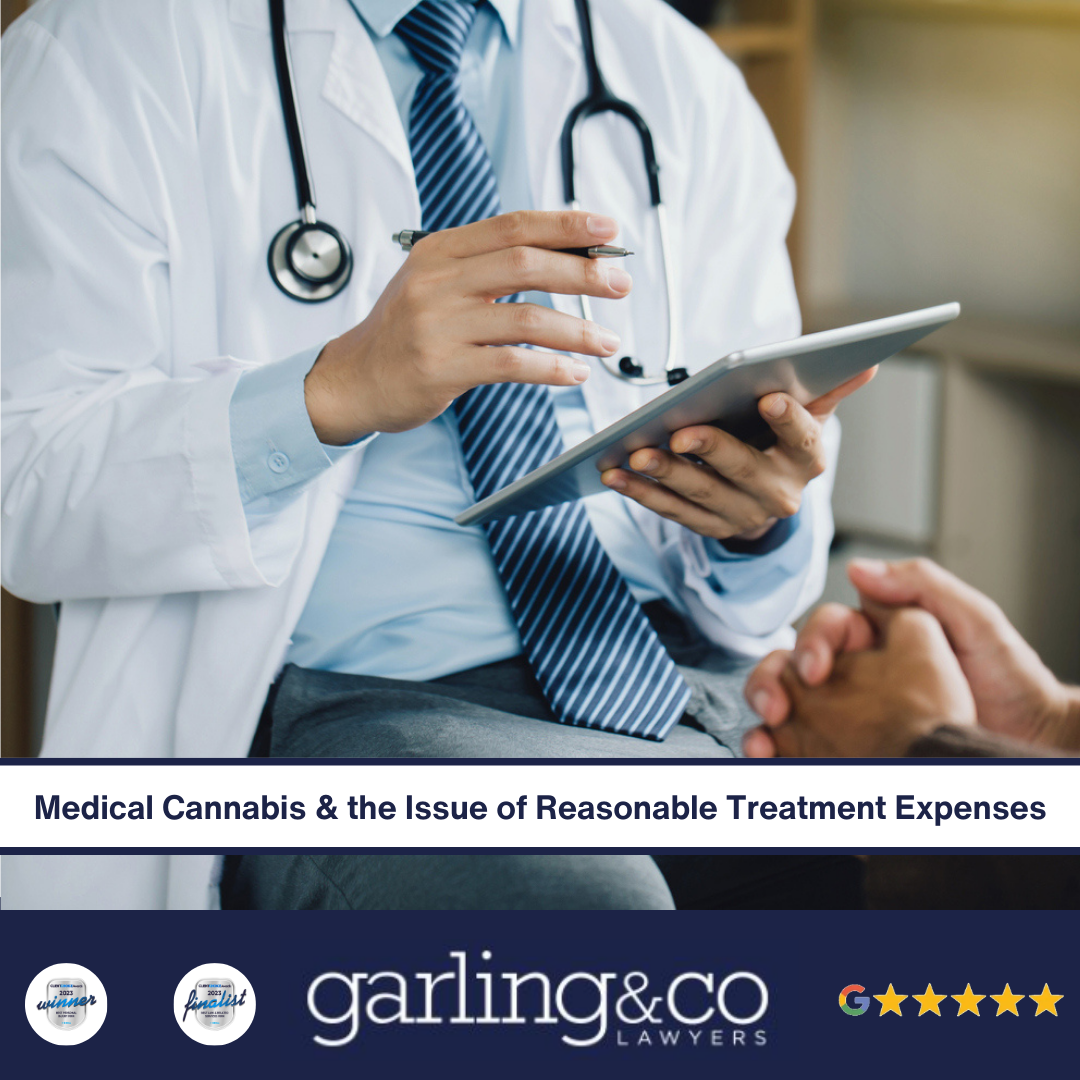
The NSW Compensation Scheme has an entitlement that an Insurer will pay for reasonably necessary medical expenses.
The Emergence of Medical Cannabis
The emergence of new and different treatment regimens has evolved over time and the Personal Injury Commission continues to consider in its decisions, all forms of treatment to which injury workers are seeking funding for, to help manage their injuries. One of those emerging areas of treatment is the prescription of medical cannabis, which can not only assist with chronic and severe pain but also psychological symptomology.
The Case of French – v – Hardwood Slip Way Pty Limited
The Personal Injury Commission recently dealt with the issue of medical cannabis and whether it constituted reasonable treatment under Section 60 of the Workers Compensation Act 1987 (NSW) on 25 August 2022 in the matter of French – v – Hardwood Slip Way Pty Limited and others [2022] NSW PIC 473.
Section 60 of the Workers Compensation Act 1987 (NSW) essentially reads as follows:
If, as a result of an injury received by a worker, it is reasonably necessary that –
Any medical or related treatment (other than domestic assistance) be given or,
Any hospital treatment be given, or
Any ambulance services be provided, or
Any workplace rehabilitation service be provided;
The worker’s employer is liable to pay, in addition to any other compensation under this act, the cost of that treatment of service and the related travel expenses specified in subsection (2).
The Commission’s Decision
In French – v – Hardwood Slip Way Pty Limited, the Personal Injury Commission confirmed that medical cannabis was reasonably necessary treatment in the case.
Key Points
The Claim
Mr French was working for the Respondent, Hardwood Slipway Pty Limited as an apprentice boat builder and on 20 July 2019 he injured his back in the course of his employment.
The claim was accepted, and he received weekly compensation and lump sum entitlements.
The request
In 2020 Mr French’s treating doctor prescribed him medical cannabis to treat his ongoing back symptomology and the insurance company declined liability for medical cannabis sighting it was unreasonable.
The proceedings
In the proceedings before the Commission, Mr French provided medical evidence indicating that his back pain had been chronic and severe since his date of injury. He indicated in his statement that medical cannabis eased his back pain as well as helped his secondary depression and anxiety which stemmed from his chronic pain. He indicated that the use of medical cannabis was more effective than the other medications and treatment options he had tried in the past and had no negative side effects.
The Respondent Insurer submitted that the medical cannabis did not meet the criteria of “reasonably necessary” quoting the authorities of Honarvar – v – Professional Painting Au Pty Limited [2022] NSW PIC PD 12 and Rose – v – Health Commission [2014] as well as the faculty of pain medicine of the Australian and New Zealand College of Anaesthetists. In such a report, to which they relied, it indicated that it was too little medical literature on the effectiveness of medical cannabis as well as the long-term impacts of pain management for it to be consider reasonable.
The decision
Member Gaius in his decision on behalf of the Commission, indicated that his preference was for the evidence provided by the worker, namely his statement evidence which indicated, and which was consistent with the qualified Doctor’s opinion that medical cannabis had significantly aided his back symptoms. The Member further indicated that the Insurer’s independent medical examiner had ignored the therapeutic benefit that the drug has had on the worker with regard to a reduction in pain and his secondary psychological symptoms.
In this case the Commission found that medical cannabis was reasonably necessary to treat pain, in the situation where it was obtained by way of a prescription obtained through the therapeutic goods administration, and in such cases the Insurer had an obligation to fund such a reasonable expense.
Conclusion
Essentially, the reasonable necessity of prescription of medical cannabis remains very much a case-by-case determination and will depend on several factors as to whether it is suitable and appropriate form of treatment for the injured worker.
If you are having a current dispute with a workers compensation Insurer regarding the reasonableness of treatment, contact Garling and Co today. Every lawyer at Garling and Co is an Accredited Specialist in Personal injury Law. We can help support your claim and ensure you receive the medical treatment you are entitled to.












